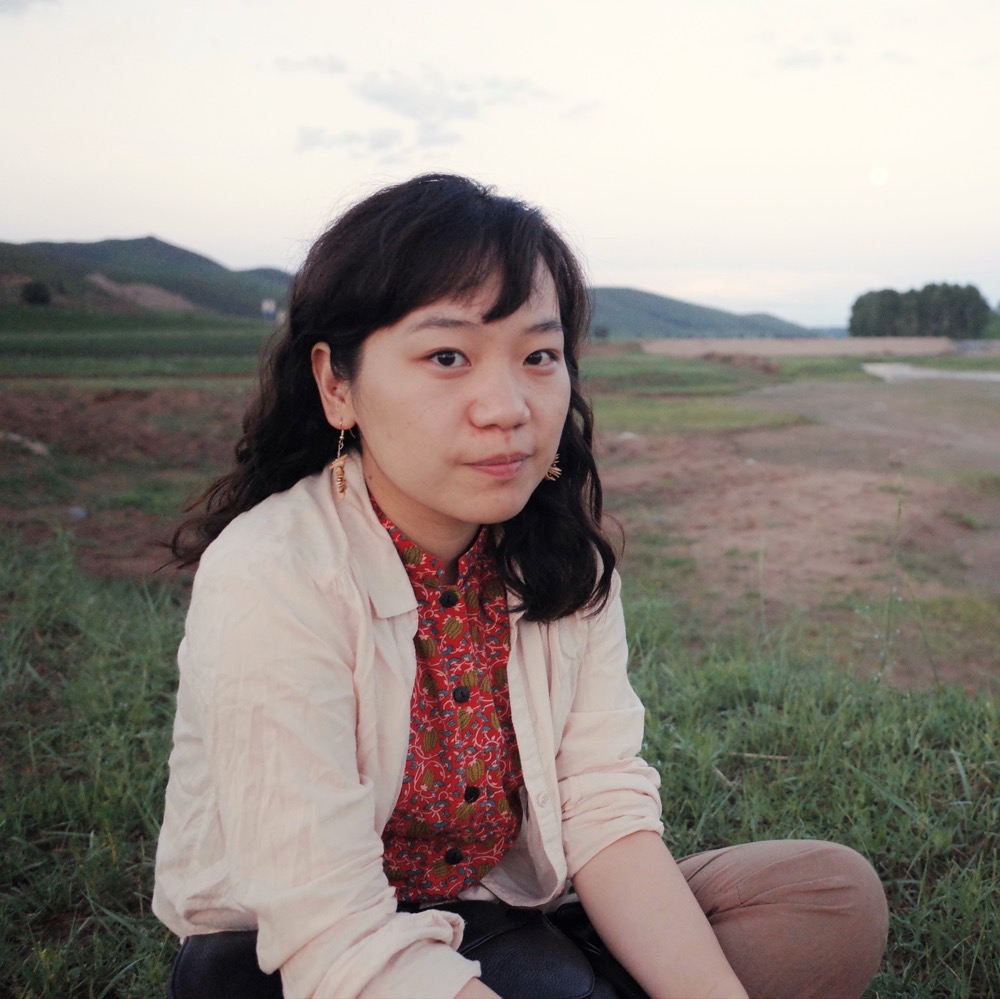李琬,1991年生于湖北武汉,北京大学中文系硕士研究生在读。李婉作品发表于《诗刊》《诗林》《飞地》《上海文学》《散文》等刊物,并收入《诗歌选粹》等选本。获2015年第九届未名诗歌奖。
下文可听到李琬朗读她的诗歌。
Li Wan, born in 1991 in Wuhan, is a Masters student of Chinese Literature at PKU. Her work has appeared in Poetry Periodical, Poetry Forest, Enclave, ShanghaiLiterature, Essay, and is included in Poetry Xuancui. She is the winner of the Weiming Poetry Prize.
She was the featured poet at the August 31 edition of Spittoon Poetry Night.
Click below to listen to her read her poem “Zero Degrees” in Chinese and English (translation by Stephen Nashef).
零度
我们送走一些死,
风却吹来太多无用之物。
远人和疾病,从陌生短信中
打听昨日。那是夏季,水的视力
还未变暗,我们刚上岸
烟草就变得潮湿,拯救被诘问的友谊。
而现在,你翻阅缺页的旧报刊,
仿佛减去了几分遗忘的艰辛。
你钻进大衣,用一颗纽扣缓释
傍晚七点钟的气温。
杂乱的自行车,像失去主人的思想
等待你灰色的辨认。
想想他,他们,还有历史的口吃。
风假装看不见我们的限度,
高处落满了枯萎,和虚荣。
多年后,这城市的夜晚
竟仍然像一段被慢慢翻译的疯狂……
你感到必须拉上窗帘,提前消失。
短暂的真理从脱脂牛奶中溢出,
不过是为了让你继续写下
每一个健康的字,这最轻的罪行
令冬天颤抖。这时,窗外的光线开始
在一小块脏冰上呼喊,像寻找离开的方式。
ZERO DEGREES
We see off a few dead,
yet the wind delivers us too many useless things.
Estranged friends and disease emerge from unknown text messages
to inquire about yesterday. It was summer, water’s vision
hadn’t yet dimmed and we had just mounted the shore,
our tobacco turned moist, to rescue a scrutinised friendship.
And now you flick through an incomplete and out-of-date paper,
looking as though you’ve shed a few forgotten griefs,
you settle deep into your coat and with the flick of a button begin to slowly release
the evening’s 7pm warmth.
A disarray of bicycles, like thoughts deprived of a master,
await your grey recognition.
Think of him, them, also history’s stutter.
The wind pretends not to notice our limits,
up there where dead leaves gather, and pride.
Many years from now, the evening of this city
will still seem like a text, a considered translation of madness…
You feel it is time to close the curtains, to vanish a bit early.
Short-lived truth overflows from the pasteurised milk,
but it’s so you can continue to write
each healthy word, this lightest of felonies
that has winter trembling. It is at this time, outside the window, the rays of light begin
screaming off soiled chunks of ice, as if looking for a way to leave.
~ OTHER POEMS ~
探戈
1
四月,他早起,晚报被蔬菜打湿
天桥下弥漫肉体的臭味。
他警惕地避开,但这气味
像影子跟踪他,直到正午。
2
他吃米粉,辣椒使他大汗淋漓
正如二十五年前,他十六,炎热空气里
他突然对着人群跳起霹雳舞
在即将消失的巨大广场的入口。
3
灿烂的春天:一座半透明的监狱
像塑料盒里的汤汁,反射出生活的棕色。
阳光穿过,阳光是男人们看不见的死者
女人们看不见的神。
4
太阳已从西面对准马路。
人群在弹道里接吻,假寐,各自看守梦境。
他走进他们,他是他记忆的中线,分割
过去与未来:两间急速移动的囚室。
TANGO
1
April, he’s up early, the evening paper wet through with vegetables.
Beneath the walkway the stink of flesh hangs in the air.
He’s at pains to avoid it, but this scent
follows him like a shadow till noon.
2
He eats rice noodles. The sour and spice make him drip with sweat
like twenty-five years earlier, sixteen years old, in the hot air
he faces the crowds and starts to breakdance
at the gate to the square that will soon disappear.
3
Brilliant spring: a translucent prison like leftover soup
in its takeaway box, reflecting the brown of life.
Sunlight pushes through. Sunlight is the dead invisible to men,
the gods invisible to women.
4
The sun has fixed its sights on the street from the west.
In its trajectory the crowds kiss, doze, stand guard at their dreamworlds.
He walks into them, he is the centreline of his memory, dividing
the past and the future: two quick-shifting prisons.
~~~
女朋友
时光倒流般的下午。
我又坐在你床边,敲击半满的茶杯。
阳光那血红的骸骨瘦小又清脆。
马路对面,到处都有窗户闪闪发亮
有许多扇门,在大楼高处转动。
你不打算谈论往日,它们根本无法
满足那些巨大坚硬的玻璃胃。
不如弹琴。灰尘婉转下落,像揭穿
一些旧谎,现在听来,令人心动。
你想戒掉咖啡,你说,在学校的每一天
它们都让你的失眠像一些脏梦
混在外出的室友和她们富有的
阿拉伯男友中间。
不说话,我们就躺着。等月亮
移过来,一个苍白的男人脸。
你背对我,一定也想起了十六岁
——十六岁,我们刚洗完澡,就能在自己身上
闻到未来情人的清香,像一本
刚刚打开的诗集——
挂钟越来越潮湿,
整个屋子是一个彻彻底底的女人。
一些易碎的器皿坚持了二十年。
隔壁,你的母亲又开始咳嗽
我们要轻轻掰断噩梦的梳齿
不要吵醒她。我们比她的痛苦
小整整三十岁。
GIRLFRIEND
One of those time-flowing-backwards kinds of afternoons.
I’m sat once again at the side of your bed, tapping the half-empty teacup.
The blood-red skeletal remains of sunlight are brittle and gaunt.
Across the road everywhere is brilliant windows sparkling light,
millions of doors in the heights of buildings swivelling open and shut.
You don’t want to talk of days past, there’s no way they can
satisfy that huge hard and glass stomach.
Not like playing the piano. Dust settles with tact, as if to expose
a few old lies. Now the sounds quicken the pulse.
You say you want to give up coffee, that at school everyday
it makes your sleeplessness a dirty dream,
it mingles with your room-mates slipping out
and their rich Arab boyfriends.
Unspeaking, we lie down, we wait for the moon
to pass over, the pale face of a man.
You turn your back to me. You must also be thinking to sixteen years old
– us, sixteen years old, having just washed, able to smell
on our bodies the scent of lovers to come, like a
freshly opened new collection of poems –
The wall-clock is getting wetter and wetter.
This whole room is utterly a woman.
Some fragile utensils have persisted for twenty odd years.
From the other side of the wall, your mother starts coughing again.
We must lightly pinch off our nightmares, like teeth from a comb,
we mustn’t wake her. Our pain is younger than hers
by a full thirty years.
~~~
三月
白昼,变得越来越宽
像一条水淋淋的巨大床单
万物寂静的婚礼,在上面滚动。
蝴蝶与太阳的交媾。
似乎永恒旋转的圆盘
也因窒息而中断。
双腿如初生一般盲目
跌跌撞撞踩上
厄科女神那古老迷狂的脚印。
秀美的水仙,则将不可医治的病毒
种在情侣的嘴唇上。
——多么纯粹的黄金和致幻剂啊。
而那个一意孤行的 火王子。
而走失了主人的 诗行。
生命的尘埃 被春天
戴在桃树的脖颈上。
MARCH
Day, gradually widening,
a huge and sopping bedsheet,
the world’s multiplicity in quiet marriage, turning above.
The butterflies and sunlight are in coitus.
Then the ever-spinning disc
stutters, as though caught by the throat.
Two legs, blind as a baby,
stumble right into that trite nymph
Echo’s hysterical old footprints.
While the sweet Narcissus sows its seed,
that incurable virus, onto the lips of sweethearts.
— O the purity of its gold and our fix.
And the prince of fire, his obstinate solitary course,
the lines of poetry whose creator’s long missing.
Life’s dirt, it seems, spring drapes
over the necks of its peach trees.
~~~
About the Translator:
Stephen Nashef, born in Glasgow and lives in Guangzhou where he translates, writes and reads. Aesthetically speaking, he has a soft spot for the abrasive.
